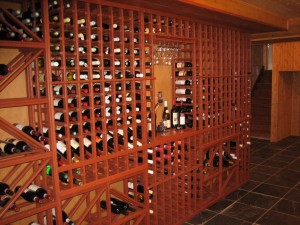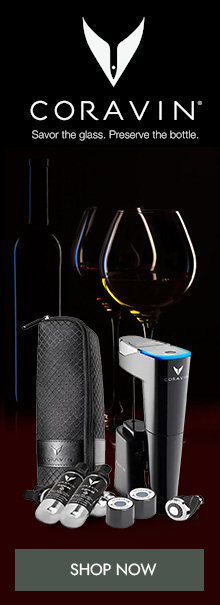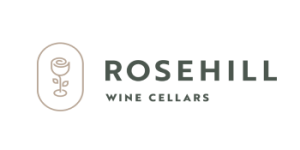
Custom wine cellars from Rosehill Wine Cellars provide the perfect environment for fine wine to age over years or decades.
The best wines are those that have aged over a long period of time. But not just any bottle of wine is made to go through the beneficial process of long-term storage in a wine cellar. In fact, estimates are that 99% of the wine bottled today is made for almost immediate consumption. The other 1% is what sets true wine lovers apart. Collecting wine for aging is about more than just the romance of terroir, swishing to identify tasting notes, and delighting in the pairing of food with the best vintages. The rare bottles of wine that are meant to age slowly have the benefit of complex chemical reactions that enhance taste and aroma. The flavor of beautifully aged wine makes a custom wine cellar more than worth the space it occupies and the cost of a wine cellar cooling unit from a top manufacturer, such as Wine Guardian, WhisperKOOL, or Cellar Pro.
Tannins
Tannin has a lot to do with the improved taste of aged wine. Seeds, plants, wood, leaves, fruit skins, and bark all contain tannin, which is a naturally occurring polyphenol. In wine, tannin adds complexity, bitterness, and astringency. Red wine contains grape tannins, and white wines usually contain tannin from the process of aging in wooden barrels.
Wines that age well are those higher in tannin content. Fine wines achieve the right balance between grape tannin and wood tannin, and the result is that the taste of the wine is smoothed out as the tannins break down in a chemical reaction, over time.
Acidity
The level of acidity in wine also determines whether or not it will age well in a wine cellar. A wine that has lower acidity should be consumed while the wine is young. High acidity wines age well. Over time, the acidity flattens out, contributing to improved flavor and complexity.
Alcohol and Residual Sugar
Winemakers must strike a balance with all of the components in wine, including alcohol level. In non-fortified wine, alcohol can more quickly turn the wine into vinegar. Fortified wine is made by adding a small amount of brandy or strong alcohol to wine. Examples of fortified wine are Madeira, sherry, vermouth, and port; they are among the wines that can age the longest.
Sweet wines also tend to age very well, including Riesling, Sauternes, and Moscato.
Wines Best for Long-Term Storage
The potential length to age wine depends upon the producer. The following estimates represent potential averages:
Fine White Wine can age for up to 10 years. Examples are: Chardonnay, such as White Burgundy and French Chablis; Sauvignon Blanc, such as White Bordeaux; and Riesling, including Auslese and German Spatlese.
Fine Red Wine can age for up to 20 years. Examples are: Merlot, such as Pomerol and St. Emilion; Pinot Noir, including Grand Cru Burgundies of France; and Cabernet Sauvignon, including Bordeaux in the Medoc Region of France.
Fine Champagne can age up to 60 years, such as Prestige Cuvee Champagne, including Dom Perignon, France.
Dessert Wine, aka Fortified Wine, can age for up to 100 years. Examples are Madeira, Hungarian Tokaji, and Semillon.
Wine Cellar Conditions
To store your collection of fine wine, it’s best to have a quality wine cellar cooling unit from a trusted manufacturer, such as Wine Guardian, WhisperKOOL, or Cellar Pro. If you are considering construction of a custom wine cellar for your fine wines, contact the experts at Rosehill Wine Cellars. We specialize in wine cellar construction, and we also offer wine cooling units and much more for the wine lovers among us.





